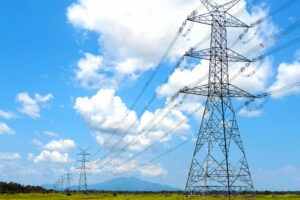By Kenneth Christiane L. Basilio, Reporter
PHILIPPINE lawmakers should craft more extensive power sector reforms as current efforts have fallen short of expectations, analysts said over the weekend.
Attempts by Congress to amend the 2001 Electric Power Industry Reform Act (EPIRA) that liberalized the country’s power sector remain lacking, they added, noting the need for more substantial reforms to make electricity cheaper and more reliable.
“While the 19th Congress has taken steps toward improving the energy sector and is working on amendments to EPIRA, these efforts remain incomplete,” Nic Satur, Jr., chief advocate officer of Partners for Affordable and Reliable Energy, said in a Facebook Messenger chat.
Mr. Satur noted the current EPIRA amendments overlook key concerns as lawmakers failed to resolve issues about tax charges and system loss charges passed on to consumers.
“Congress must enact stricter accountability laws with higher penalties for non-compliance across power generation, transmission, and distribution,” he added.
He also raised the need for Congress to ensure broader representation of consumer groups for policymakers to gain a deeper understanding of how the inefficient energy sector affects Filipino consumers.
Amendments to the 24-year-old law are among the priority bills set by President Ferdinand R. Marcos, Jr. for the 19th Congress, which is set to end its session in June.
“We would have wanted to see EPIRA reforms within the 19th Congress but the 20th Congress can nonetheless work on this by the latter half of the year,” Terry L. Ridon, a public investment analyst and convenor of think tank InfraWatch PH, said in a Facebook chat.
EPIRA was widely believed to have failed in its intent to lower electricity consumer costs, with Philippine electricity rates among the highest in the Southeast Asian region, according to a 2022 Ateneo de Manila University report.
The House of Representatives last year approved a bill rationalizing the government’s power assets management body, which Speaker Ferdinand Martin G. Romualdez touted as an amendment to EPIRA.
Another measure seeking to strengthen the Energy Regulatory Commission’s (ERC) functions was approved by the House on second reading in early February. Its counterpart bill remains pending at the Senate energy panel.
Party-list Rep. Sergio C. Dagooc, who sponsored House Bill No. 11373 that seeks to strengthen the ERC, told BusinessWorld that he’s optimistic the measure can still pass the 19th Congress.
Lawmakers should also look at expanding ERC’s manpower, according to Mr. Ridon. “Its current staffing limits its efficiency in resolving cases and concerns in a timely manner.”
They should also consider “anti-oligopoly measures” to police power companies and prevent market manipulation, said Jose Enrique “Sonny” A. Africa, executive director at think tank IBON Foundation.
“This will enable the government to more fully address the structural failures of EPIRA and take more decisive steps toward energy sovereignty and public interest-driven electricity provision,” he said in a Viber message.
Moreover, Congress should look at nationalizing the Philippines’ power sector, he added. “Public ownership can be steadily expanded towards eventual full nationalization and restructuring the power sector towards a non-profit, public-interest and national development model.
“The current approach to amending EPIRA is fundamentally constrained by remaining private sector-driven rather than moving toward state-led development and public control of electricity,” said Mr. Africa.

